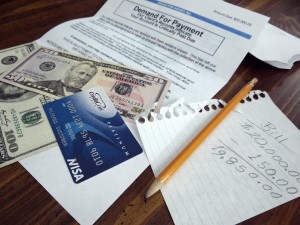Bankruptcy and Payday Loans in Ohio
Bankruptcy Law
What are Payday Loans in Ohio?
Payday loans are often referenced by a variety of names including cash advances, pay check loans, or some other variation of the same. Some of the well-known companies providing these types of loans include:
- Cash Land
- Check Smart
- Cash Advance
- Check Into Cash
- Loan Max
- Check N Go

Though the name of the loan or the name of the company providing the loan may vary, the loans are basically the same. Payday loans are short-term unsecured loans that have high interest rates and fees. The loan is legalized through the execution of a lending document. The loans have a due date where the principal, interest and loan fees must be paid in full. Most payday loan lenders require that a borrower provided either a postdated check or setup an automatic ACH withdraw from a bank account. Many consumers are not able to pay the loan in full on the due date.
This creates what many believe to be the nasty cycle of payday loans. What often occurs is that a borrower is unable to pay the principal, interest and fees in full on the due date, so the borrow must renew, or refinance, the loan. In this circumstance, the borrower must generally pay the interest and fees in full and essentially take out another loan for the original amount and incur new interest and fees. This creates a cycle where the borrower is continuing to pay interest and fees indefinitely without every paying down any portion of the principal loan amount. This can often go on for years leaving the consumer in an economic disaster.
Can Payday Loans Be Eliminated in Chapter 7 Bankruptcy?
Payday loans can be discharged in bankruptcy, but payday loans are not always able to be discharged in bankruptcy. The actual rule is that cash advances (payday loans) totaling more than $750 that are extensions of consumer credit under an open end credit plan obtained by an individual debtor on or within 70 days before the order for relief are not dischargeable in a chapter 7 bankruptcy filing. In plain English, you cannot take out, or renew, $750 or more (all loans totaled) of payday loans within the 70 days before you file for chapter 7 bankruptcy protection. So, it you have less than $750 of payday loans, you can always include the balances in a chapter 7 bankruptcy filing.
If you owe more than $750 of payday loans, it is an easy fix, you merely wait for 70 days to file for chapter 7 bankruptcy protection, after you take out, or renew, the last payday loan. Under this circumstance, the obligations are dischargeable. However, this is where the payday loan tap comes into play. Most payday loans must be paid or renewed in intervals shorter than 70 days. Most payday loans require a postdated check or an automatic withdraw to be established. This means that it is difficult for a borrower to create a situation where it has been over 70 days between the day the last loan was taken/renewed and the filing for bankruptcy protection. Therefore, most people run into a vicious cycle of either renewing the loans, or having the funds automatically taken from their bank accounts.
- Bankruptcy overview
- Chapter 7
- Chapter 13
- Income
- Non-Dischargable
- Student Loan
- Wait to File
- Debts
- Credit Repair
- Home Ownership
- Lawsuit Protection
- Wage Garnishment
- Tax Relief
- Vehicles
- Bankruptcy and Payday Loans in Ohio
- Bankruptcy Discharge Reinstatement Fees
- Bankruptcy Trustee
- Best Bankruptcy Attorney
- Why Use Bankruptcy Lawyer
- Avoiding Mortgages and Judicial Liens Through Bankruptcy in Ohio
